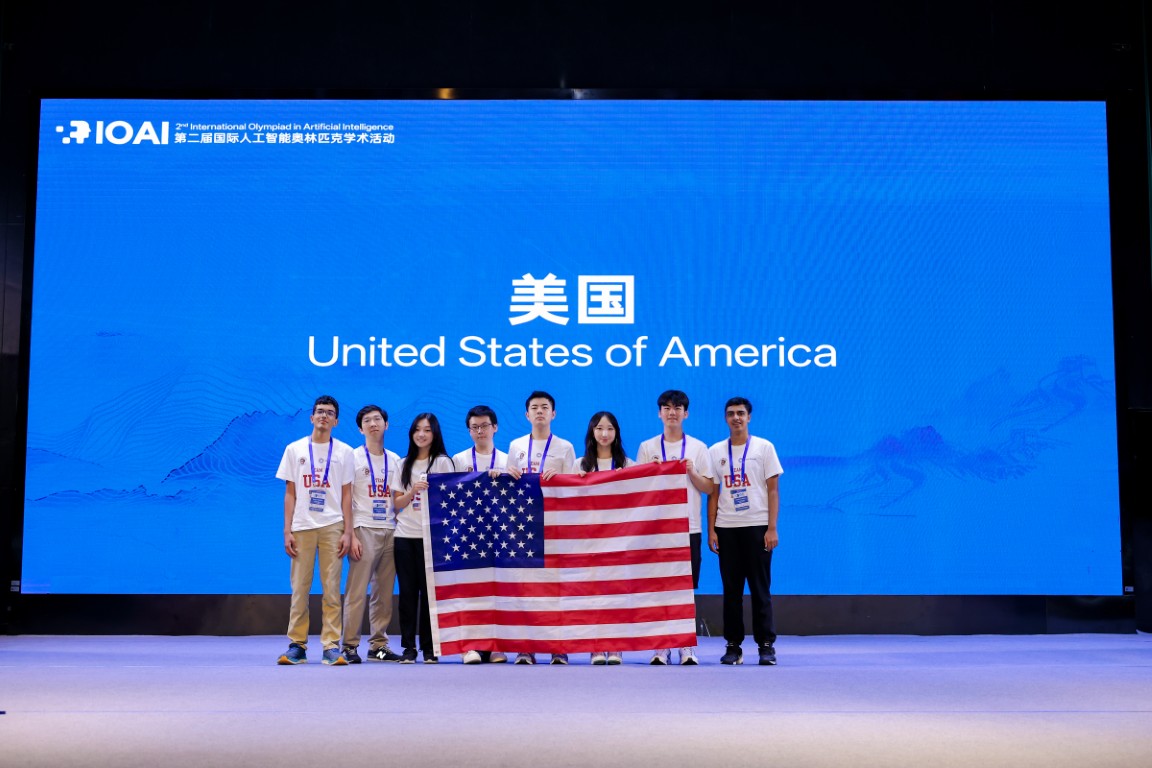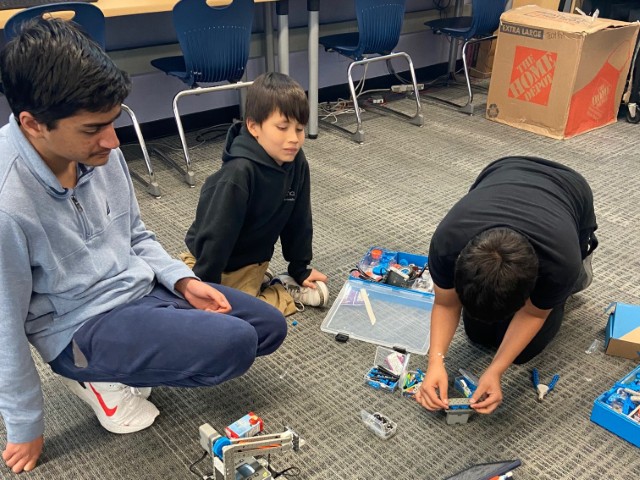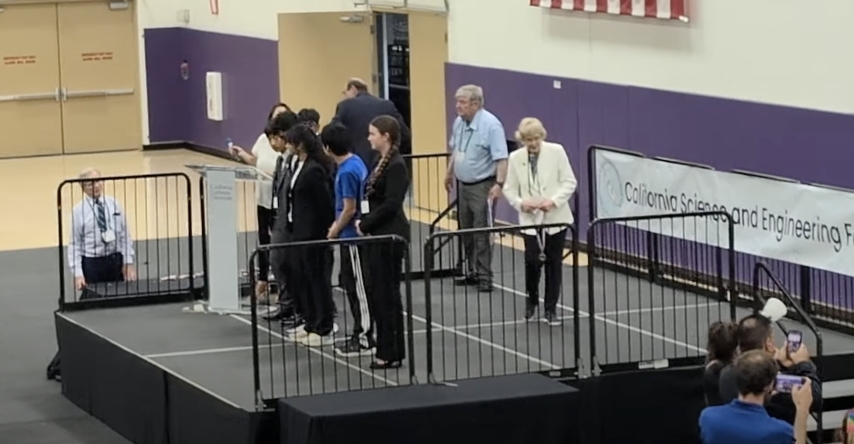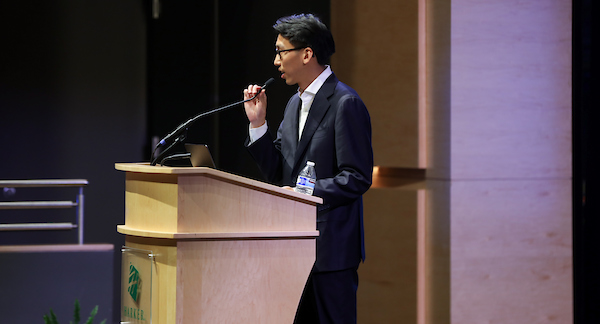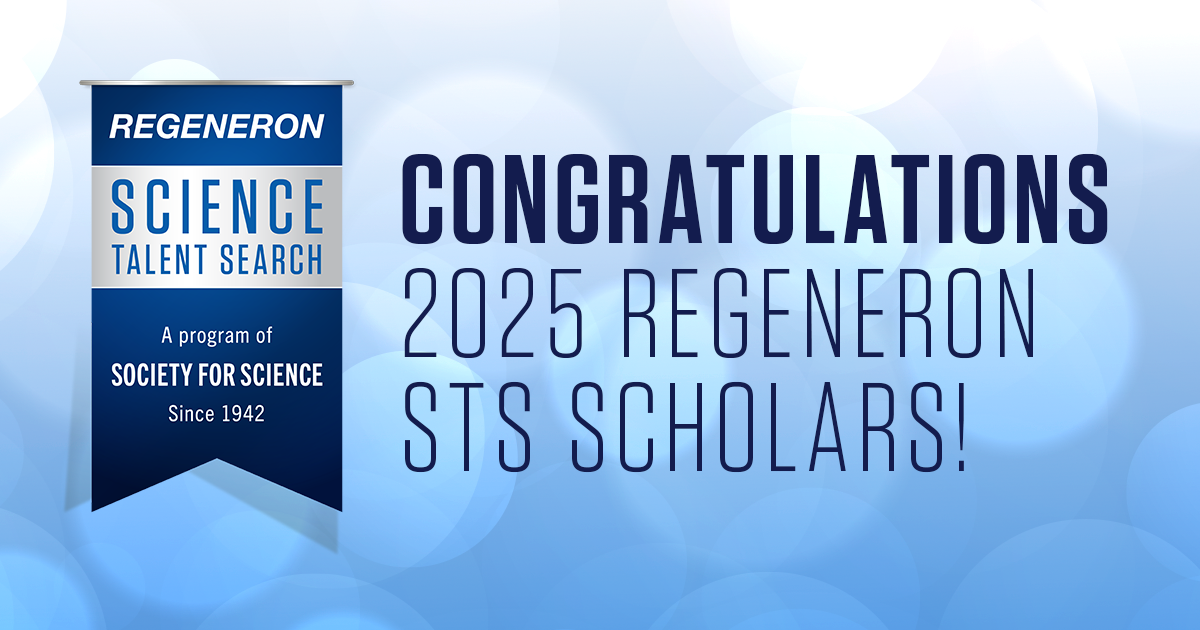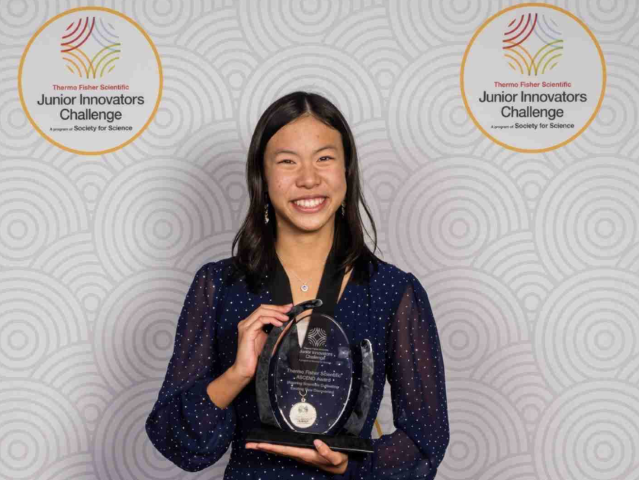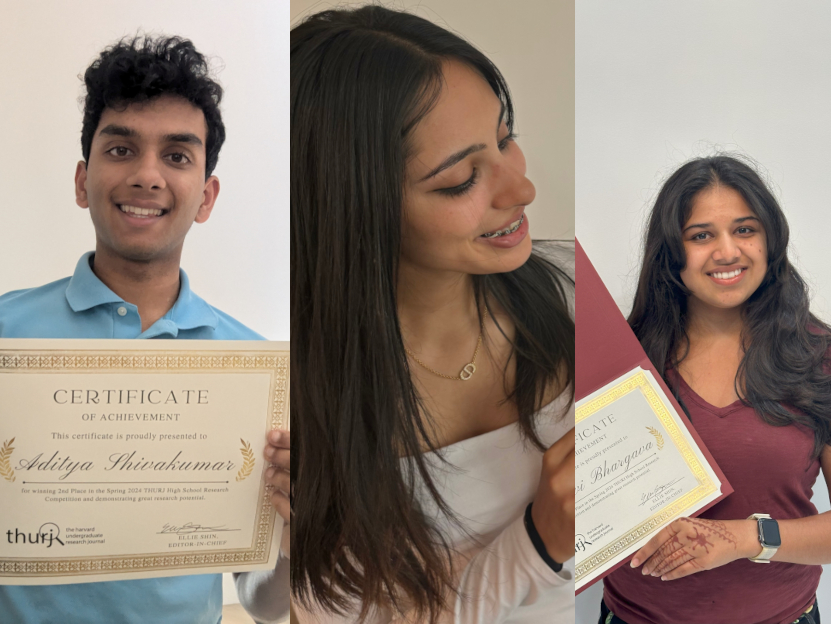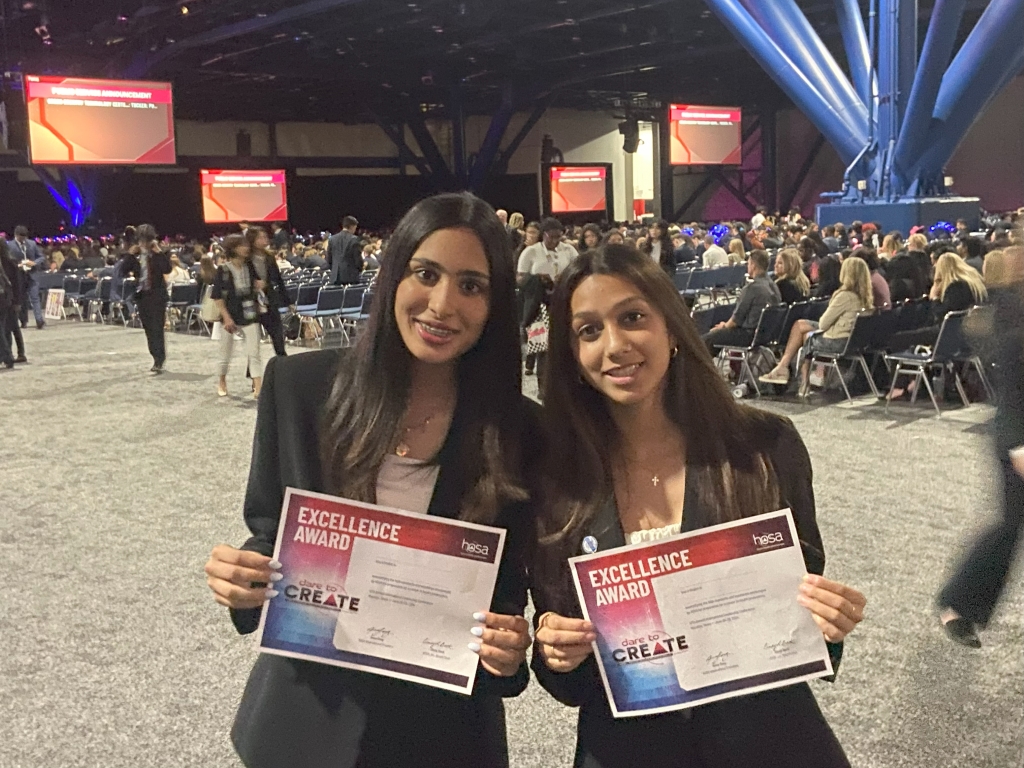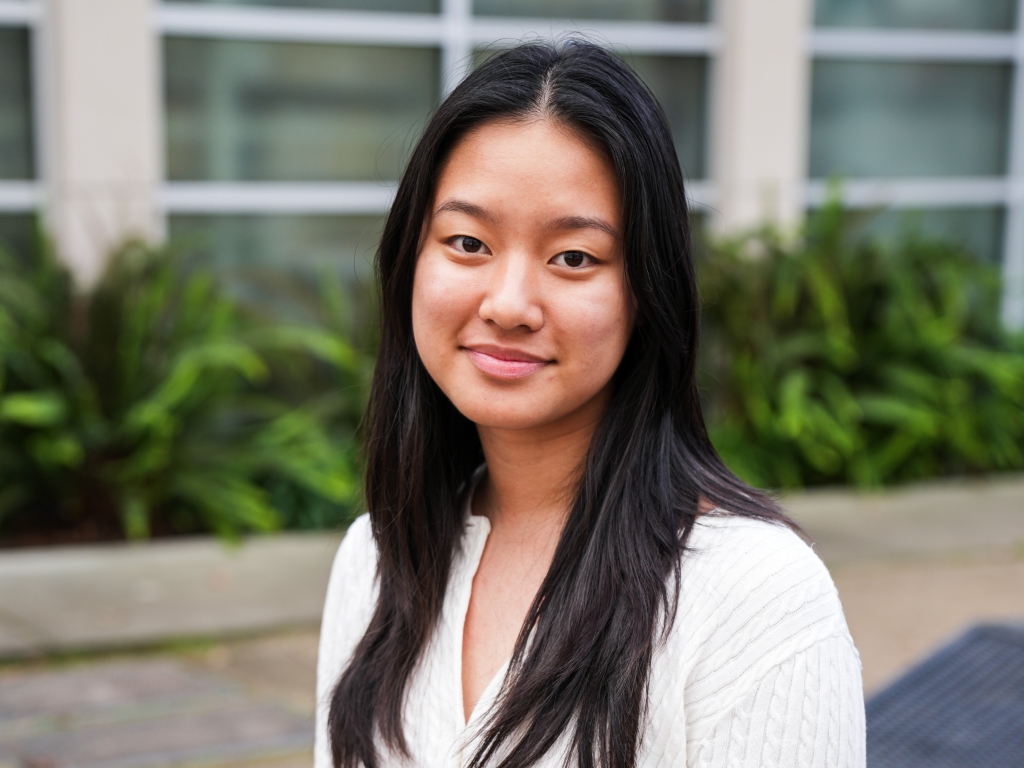Senior Keira Chang published her latest book, “Marinara & Alfredo: How Do Airplanes Fly?” to Amazon.
Science
Senior wins silver medal at Int’l AI Olympiad
enior Lily Shi earned a silver medal earlier this month at the second annual International Olympiad in Artificial Intelligence in Beijing.
Student-founded non-profit receives grant from Texas Instruments
STEM Veda, a non-profit organization founded by sophomore Rohan Goyal, recently received a $2,500 grant from Texas Instruments to expand its operations.
23 students take top spots at California Science and Engineering Fair
Twenty-three middle and upper school students recently had high placings at the 2025 California Science and Engineering Fair, held in Thousand Oaks, Calif.
19th Research Symposium investigates “AI Trends” with talks by tech luminaries, students and alums
More than 600 registrants flocked to the upper school campus on April 12 for the 19th annual Harker Research Symposium: “AI Trends: The Future is Now.”
Three seniors among top 300 scholars in 2025 Regeneron Science Talent Search
Three Harker seniors were named to the top 300 scholars in the 2025 Regeneron Science Talent Search, one of the country’s most prestigious science competitions.
[UPDATED] Eighth grader takes top prize in Junior Innovators Challenge
Last week, eighth grader Tina Jin took the top prize in the Thermo Fisher Scientific Junior Innovators Challenge.
Harker takes three of five top spots in Harvard research competition
Upper school students took three out of five top spots in the The Harvard Undergraduate Research Journal’s (THURJ) Research Competition.
Rising juniors take sixth place at international health care conference
Rising seniors Angelina Antony and Disha Gupta took sixth place among 175 teams in Creative Problem Solving at the HOSA International Leadership Conference.
Michelle Wei ’24 wins Regeneron Young Scientist Award at ISEF
At the Regeneron International Science and Engineering Fair (ISEF) in Los Angeles, recent graduate Michelle Wei ’24 received the Regeneron Young Scientist Award

